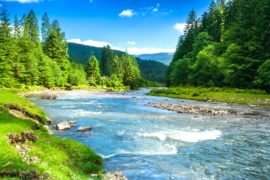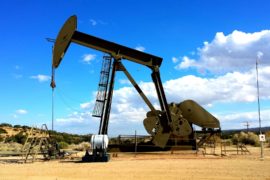When shopping for clothes, many people shop based on things like comfort or style, but not many people check for clothing’s eco-friendliness.
More and more clothing companies are providing clothes made from eco-friendly fabrics. Demand for these clothes is increasing too. This makes sense given the environmental issues we’re faced with in today’s world.
What Makes a Fabric “Eco-Friendly”?
Eco-friendly fabrics generally have the following characteristics:
Minimum use of chemicals and pesticides
Best land manangement practices
Sustainable farming practices
Eco-friendly certification (i.e. EU-Eco label certification)
Animal friendly
Production adheres to fair trade practices
By purchasing organic, you can be sure that the product was produced without the use of harsh chemicals and pesticides, and is not only healthy for the environment but is also healthy for you.
The Fabrics
Here’s a list of eco-friendly fibers to look out for. Next time you’re shopping for clothes, look out for clothes that are made from the following fibers (or other eco-friendly fibers):
Hemp – An amazing natural fiber. Some say hemp could have 25,000 uses. Hemp provides enormous benefit to the natural environment. This is true when used in products and when growing the hemp plant.
Jute – Similar to hemp, jute is a type of vegetable fiber used for thousands of years, with outstanding potential for the future.
Ingeo – Trademark for a man-made fiber derived from corn.
Calico – Fabric made from unbleached cotton. Also referred to as muslin.
Hessian Cloth – Coarse woven fabric made from jute or hemp.
Organic cotton – Cotton grown organically (without pesticides etc)
Recycled Polyester – Polyester created from used polyester garments.
Bamboo Fiber – Bamboo fabric is very comfortable and 100% biodegradable.
Tencel® – Brand name for a biodegradable fabric made from wood pulp cellulose.
Ramie – Ramie fibers are one of the strongest natural fibers. Ramie can be up to 8 times stronger than cotton, and is even stronger when wet.
Organic Wool – Organic wool is wool that has been produced in a way that is less harmful to the environment than non-organic wool.
Organic Linen – Linen that is made from flax fiber. Could also refer to be linen made from other organically grown plant fibers.
FORTREL EcoSpun – Fiber made from plastic containers
Milk Silk – Silk made from milk
Soy Silk – Silk made from soybeans
Nettle fiber – Made from stinging nettle (commonly known as a weed)
Spider-web fabric – Fabric made from spider webs. Still in the experimental stages.
Eco-Friendly Finishes and Dyes
As well as the fabric used to make clothes, many clothes are dyed and/or have laminate finishes etc. Here are some eco friendly options:
Biodegradable TPU Laminate – Solvent free TPU that can biodegrade in as little as 4 years.
NanoSphere® Textile Finish – Self cleaning textile finish for clothing and other textiles.
Non-Toxic Dyes – These can be better for your health as well as the environment.









Comments are closed.